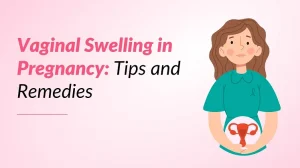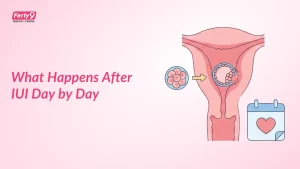What is IUI and How Does it Work?
Intrauterine Insemination (IUI) is one of several Assisted Reproductive Technologies (ART) performed to treat infertility. To achieve a pregnancy with Intra Uterine Insemination, processed . or partner semen is deposited in the uterine cavity around the time of ovulation. Increasing the gamete (sperm) density at the fertilization site is the rationale for IUI.
. IUI is a level 1 assisted reproduction procedure that is regarded as an extension of natural conception, which involves only handling semen outside the body; ovulation, fertilization, embryogenesis, and implantation occur naturally. Success rates can reach 20% each cycle. using fresh or frozen sperm.
The IUI Procedure and Immediate Post-Care
Following the preparation of the semen sample, the IUI process itself just takes a few minutes. Painkillers or medications are not required. The following is the procedure performed by your doctor.
- Attaching the vial (containing sperm) to the catheter (a long tube)
- Placing the catheter into the vagina
- Injecting the sperm into the uterus
- Removing the catheter.
You lie on your back for a short while (20-30 minutes) after the sperms are inserted into your uterus. You can resume your regular daily activities after the procedure is completed. A day or two following the treatment, you can have some minor spotting.
Related Read: What do Cramps Indicate after IUI?
Do’s After IUI Treatment
The following measures should be considered post-IUI treatment to aid in conception:
Maintaining a Healthy Diet
A healthy diet rich in nutrient-dense foods like leafy greens, fruits, and nutritious meals, along with gentle exercise or yoga, is crucial for overall well-being. Maintaining a balanced lifestyle and staying hydrated are key to supporting your health during this important stage of your fertility journey. Additionally, getting 7-8 hours of sleep each night can help reduce stress and promote better health.
Taking Prescribed Medication
At this point, your doctor’s advice is crucial. From the advised drug regimen to the suggested activity restrictions and follow-up appointments, everything is important. You can increase your chances of success and inspire confidence in the process by listening to every detail the doctor insists on.
Having a Positive Mindset and a Supportive Environment
- Taking part in other activities will help you feel calm after the heavy stress that comes with fertility treatments.
- Having a positive mindset and developing a supportive network become extremely important at this critical stage. They will always be a pillar of support for your important phase of life, offering comfort, encouragement, and a secure environment to express your ideas and feelings just by their very existence.
- Also, listening to your body and tracking the symptoms will help you navigate this path with trust and confidence.
Ferty9’s Success Story: Together in IVF: Ferty9 Helps Couple Conceive, Overcoming Genetic Condition
Don’ts After IUI Treatment
After IUI treatment, the most important aspects to avoid are
- Intense workouts or heavy lifting.
- Self-medications
- Stress
- Bathing in hot water and Sauna
- Smoking and alcohol consumption
- Minimizing tea, coffee, or caffeine intake
- Harmful radiations
- Long trips
Ferty9’s Success Story: Together in IVF: Ferty9 Helps Foreign Couples Conceive, Despite History of Tubal Pregnancy
Common Myths and Misconceptions
Here are common myths and misconceptions about intrauterine insemination (IUI):
- Success Guaranteed: IUI doesn’t guarantee pregnancy; it’s a treatment option that increases the chances of pregnancy.
- Painful Procedure: IUI is minimally invasive and usually painless.
- No Need to Monitor Fertility Cycles: Monitoring is essential for optimal IUI outcomes
- Immediate Success: While IUI can be successful, it may take a few cycles
- Risk of Multiples: IUI doesn’t significantly increase the risk of twins or triplets.
Related Read: The Role Of Fertility Centers In Modern Reproductive Medicine
Success Rates
Many elements affect an IUI’s success rate. These variables include
- the age of the woman,
- the kind of infertility,
- the quantity of follicles generated through ovarian stimulation,
- the concentration of estradiol on the day of administering human chorionic gonadotrophin,
- the characteristics of the sperm (density, motility, and concentration),
- the duration of the infertility,
- the thickness of the endometrium, and
- the number of IUI cycles.
Related Read: IVF cost – Myths and facts, inclusions, Ferty9’s promise of affordability
When Should I Seek Professional Help Post IUI?
While some discomfort is to be expected, certain symptoms need to be treated right away. Contact your healthcare practitioner if you encounter any unexpected symptoms, like intense pain or continuous bleeding.
Related Read: What To Expect in an Infertility Counselling Session
Conclusion
Among assisted reproductive procedures, intrauterine insemination (IUI) is regarded as the first-line treatment for infertile couples, because it is a less expensive and less invasive treatment. IUI is a simple fertility procedure that can be performed with or without fertility medications. . Always remember that every journey is different and has its own set of successes and setbacks. Accept the unknown, acknowledge your accomplishments, and never lose the strength that you’ve acquired.





























